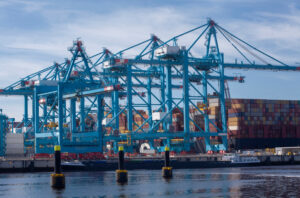Digitalisation will be one of the key foundational stones for the reconstruction and mondernisation of the Port of Beirut, according to a new report from the World Bank that aims to guide policymakers and stakeholders.
The “Reforming and Rebuilding Lebanon’s Port Sector: Policies and Solutions for Digitalizing the Port of Beirut” report outlines key principles for the design and implementation of digital trade solutions at the Port.
The anticipated slow recovery of the Lebanese port sector is likely to exacerbate the burden on the economy while opportunity costs are high, and competition with other ports in the Eastern Mediterranean region is expected to intensify.
The report argues that digitalisation of the Port of Beirut will generate “positive spill over effects” on the Lebanese economy. Its implementation will reinforce anti-corruption practices and increase people’s trust in government organisations.
It will also help reduce trade costs and bureaucracy, enabling more small and medium enterprises to participate in international trade. Port digitalization makes movements of hazardous substances more transparent and permits identification of dangerous levels or cases of combined storage.
Additionally, it will also improve the efficiency, effectiveness and predictability of logistics services, the World Bank said. Finally, the digitalisation will improve regulatory oversight and decision making via the analysis of big data and the generation of new key performance indicators and business intelligence.
Saroj Kumar Jha, World Bank Mashreq Regional Director, “Rapidly evolving technology is creating the digital ports of the future and Lebanon should not be left out.
“Through an all stakeholder approach, Lebanon should immediately enact special port institutional framework to reform the port sector and to launch transformation process towards a structured and systematic technological upgrade of the port of Beirut to support Lebanon’s economic recovery.”









